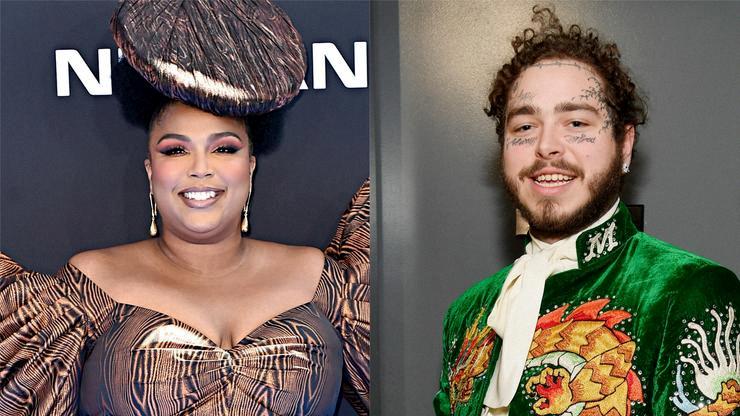The music industry has always been a hotbed of controversies, with artists constantly being scrutinized for their authenticity and originality. One such term that has gained popularity in recent years is “Industry Plant.” The term is often used to refer to young artists who have been signed to major record labels and seem to have tapped into a dominant trend in the music industry. In this article, we will delve into the meaning of the term Industry Plant and explore its implications in the music industry.
The term Industry Plant generally refers to an artist who has major label support but portrays themselves as “independent” or an artist who didn’t have an organic rise. These artists are often accused of being manufactured by record labels and not having a genuine following. They are believed to be heavily backed by record labels before they even got big, thus being deemed “Industry Plants.” The slang term “Industry Plant” has been used by rappers such as Russ, Quadeca, Tre Capital, Sha Hef, Prof, and many more.
The concept of Industry Plants is not a new phenomenon in the music industry. Artists like Lizzo, Post Malone, Billie Eilish, Eminem, and many more have been accused of being Industry Plants at some point in their careers. These artists have all benefited from major label backing and had successful careers, but some have argued that they did not have an authentic rise to fame.
Some people view Industry Plants negatively, seeing them as inauthentic and manufactured. However, others argue that there is nothing inherently wrong with being an Industry Plant. After all, record labels are in the business of making money, and if an artist can be successful with major label backing, then why not?
The debate surrounding Industry Plants highlights the tension between authenticity and commercial success in the music industry. On the one hand, fans want to believe that their favorite artists are genuine and authentic. On the other hand, record labels are in the business of making money and will do whatever it takes to promote their artists and generate revenue.
The term Industry Plant refers to an artist who has major label support but portrays themselves as “independent” or an artist who didn’t have an organic rise. While some view Industry Plants negatively, others argue that there is nothing inherently wrong with being an Industry Plant. The debate surrounding Industry Plants highlights the tension between authenticity and commercial success in the music industry. Ultimately, the decision of whether or not to support an Industry Plant is up to each individual music fan.
The Definition of an Industry Plant
An industry plant is a term oftn used in the music industry to describe an artist who appears to have been manufactured or groomed by a record label in order to fit into a particular trend or genre. This term has gained popularity in recent years due to the increasing influence of streaming services and social media on the music industry.
Some people use the term to describe artists who are signed to major labels at a very young age, before they have had a chance to develop their own unique artistic identity. These artists may be seen as being “manufactured” by the label, rather than developing their own sound and style over time.
Others use the term more broadly to describe any artist who seems to have been strategically marketed and promoted by their label in order to appeal to a particular audience or trend. This may involve carefully crafted social media campaigns, collaborations with other popular artists, or other tactics designed to increase their visibility and popularity.
There is some debate within the industry as to whether the concept of an industry plant is harmful or helpful to the music industry. Some argue that it can be a useful way for labels to identify and promote talented artists who might otherwise go unnoticed, while others see it as a way for record labels to manipulate and control the music industry in ways that are ultimately detrimental to the art form itself.
In any case, it is clear that the concept of an industry plant is likely to remain a part of the music industry lexicon for the foreseeable future, as artists and labels continue to navigate the ever-changing landscape of the music industry.

Source: dailynexus.com
Examples of Industry Plants
One example of an industry plant is the rapper Post Malone. He was signed to Republic Records in 2015, and his debut single “White Iverson” quickly gained popularity. Some fans and critics accused him of being an industry plant due to the fact that he had connections with prominent music industry figures before the release of the song. Additionally, Post Malone’s image and sound were carefully crafted by his label to appeal to a certain demographic, leading some to believe that he was not an organic artist but rather a manufactured product of the music industry.
Another example of an industry plant is the pop singer Billie Eilish. She was signed to Interscope Records at the age of 14, and her debut single “Ocean Eyes” went viral on social media. Some fans and critics have accused her of being an industry plant because of the massive marketing and promotion campaigns that her label has invested in her career. Additionally, her unique image and style have been carefully curated by her label to appeal to a specific audience, leading some to question whether her success is due to her talent or her label’s marketing efforts.
It is important to note that the concept of industry plants is controversial and often debated in the music industry. While some believe that certain artists are unfairly promoted and marketed by their labels, othrs argue that all successful artists receive some level of support and promotion from their labels. Ultimately, the success of an artist depends on a variety of factors, including talent, hard work, and luck.
What Is an Industry Plant?
An industry plant is a term used in the music industry to refer to an artist who appears to have an independent rise but is actually backed by a major record label. In simple terms, it means that the artist is not as authentic or genuine as they appear to be.
Industry plants are often accused of being manufactured and having no real talent, but teir label support helps to promote and market them as if they are organic and independent. This can be confusing for fans who may believe that they are supporting an independent artist when in fact, they are supporting a major label artist.
Some signs that an artist may be an industry plant include having sudden and significant social media following, immediate radio play, and appearing on major playlists without much prior exposure. It’s important to note that not all artists with major label support are industry plants and that some artists with organic rises may also have major label support.
An industry plant is an artist who appears to have an independent rise, but is actually backed by a major record label. This term is used to describe artists who are not as authentic as they appear to be and are often accused of being manufactured.
What is an Industry Planet?
An industry plant is a term used in the music industry to refer to an artist who appears to have an organic following, but in reality, has a major or indie label backing their movement. The term is oftn used in the context of hip-hop, but can be applied to any genre of music.
The concept of an industry plant is controversial as it creates an illusion of authenticity, which can mislead fans. It is a common tactic used by record labels to promote their artists and increase their visibility. The label invests in the artist’s image and marketing to make them appear as if they have gained a significant following on their own.
The industry plant phenomenon is not new, and it has been present in the music industry for decades. However, with the rise of social media, it has become easier for artists to create a perception of organic growth. They can buy followers, comments, and likes to make it look like they have a substantial following.
Some indicators that an artist may be an industry plant include:
– Sudden rise to fame without any prior exposure or experience
– Lack of grassroots support or a dedicated fan base
– Heavy marketing and promotion by a record label
– Inconsistent or unconvincing backstory
Industry plants can be detrimental to the music industry because they undermine the credibility of authentic artists. They create a false narrative and can mislead young fans who may believe that success in the music industry is attainable without hard work and dedication.
An industry plant is a music artist who is backed by a record label but presents themselves as an organic, independent artist. The term is controversial as it can mislead fans and undermine the credibility of authentic musicians.

Conclusion
The term “Industry Plant” has become a widely used term in the music industry to describe artists who have gained major label support but present themselves as independent or homegrown. The term has been used by rappers and fans alike to describe artists who have seemingly come out of nowhere and quickly gained massive fame and success. While some may argue that being an Industry Plant takes away from an artist’s credibility and authenticity, others argue that it is simply a reflection of the changing landscape of the music industry. Regardless of how one may feel aout the term, it cannot be denied that the concept of Industry Plants has become a topic of discussion and controversy in the music world.
